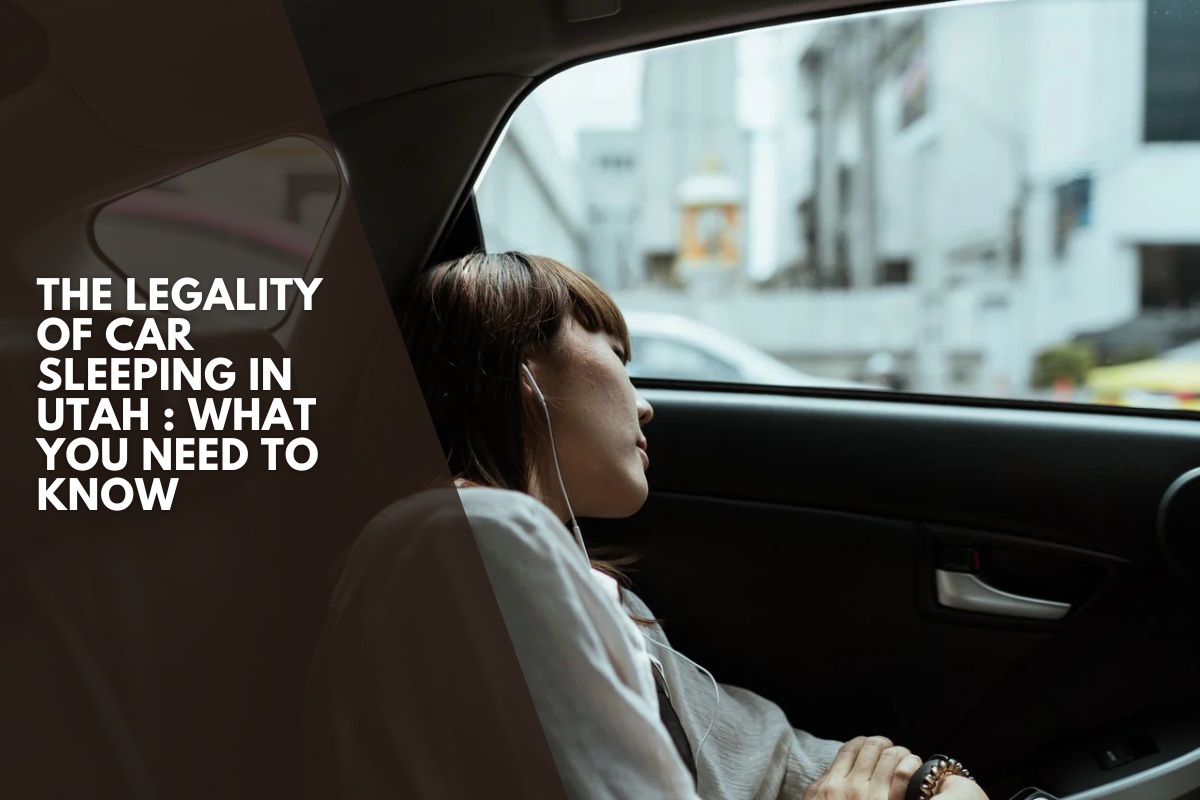Sleeping in your car can be a convenient way to rest while traveling or during unforeseen circumstances. However, the legality of car sleeping varies significantly depending on location, local laws, and specific circumstances.
In Utah, laws around sleeping in a vehicle have nuances that are important for drivers and travelers to understand. This article outlines what is legal, where it is allowed, and what restrictions apply for car sleeping in Utah as of 2025.
Is Sleeping in a Car Legal in Utah?
In general, sleeping in your car in Utah is legal as long as you comply with local ordinances and state laws. Statewide, there is no blanket law forbidding sleeping in a vehicle. Many truckers, travelers, and van-lifers take advantage of this option while on the road. However, specific locations may have restrictions that make it illegal to sleep in a parked car.
Where Can You Legally Sleep in Your Car?
Utah offers several places where car sleeping is typically allowed:
Rest Areas: Utah’s rest stops generally permit sleeping in vehicles overnight, often without strict time limits, though visitors should always look out for posted rules to avoid fines.
Truck Stops and Travel Plazas: Many of these facilities welcome tired drivers to catch rest breaks in their vehicles while supporting commercial transportation safety.
BLM (Bureau of Land Management) and Public Lands: Dispersed camping is common and largely legal on many public lands managed by the BLM, making it a popular option for those sleeping in cars or camper vans.
Private Commercial Parking Lots: Places like Walmart often allow overnight parking and sleeping in vehicles, but policies vary widely by store and municipality, so checking with store management beforehand is essential.
Restrictions on Sleeping in Cars in Utah
Despite broad acceptance, several restrictions apply:
City and Municipal Ordinances: Many Utah cities prohibit sleeping in vehicles parked on public streets or visible public areas. Cities like St. George have ordinances that make sleeping in cars illegal anywhere within city limits, often enacted to discourage vagrancy and maintain public order.
Private Property: Parking and sleeping on private property without owner permission constitutes trespassing and can lead to legal consequences.
Safety Considerations: Sleeping with the engine running can pose risks from carbon monoxide poisoning or noise complaints. Locking doors and ensuring a safe environment are strongly advised.
Length of Stay: Some public lands or areas may limit time spent sleeping in vehicles (e.g., 14 days maximum in some dispersed camping zones managed by BLM).
Practical Tips for Car Sleeping in Utah
Always check local signs indicating parking or camping restrictions.
Use facilities like rest areas or known campgrounds when possible.
Maintain a low profile to avoid drawing attention or complaints.
Lock your doors and secure valuables for personal safety.
Avoid parking in residential neighborhoods to prevent neighbor disputes.
Sleeping in your car in Utah is legal in many circumstances but governed by local regulations that may prohibit it in city streets or private properties. Rest areas, truck stops, and public lands are generally safe places for car sleeping when done respectfully and lawfully. Understanding these legal nuances helps travelers enjoy restful breaks while avoiding fines or conflicts during their Utah journeys in 2025.
Sources
(https://karmyogimehsana.in/car-sleeping-laws-in-the-us-states-where-you-can-t-sleep-in-your-car)
(https://www.reddit.com/r/camping/comments/16h55j8/sleeping_in_my_car_in_utah/)
(https://www.reddit.com/r/Utah/comments/gla3dy/can_you_sleep_in_your_car_in_utah/)
(https://www.ecoflow.com/us/blog/guide-to-overnight-parking-at-rest-areas)
(https://escapecampervans.com/blog/can-you-sleep-in-a-van-on-a-campsite-in-utah/)











